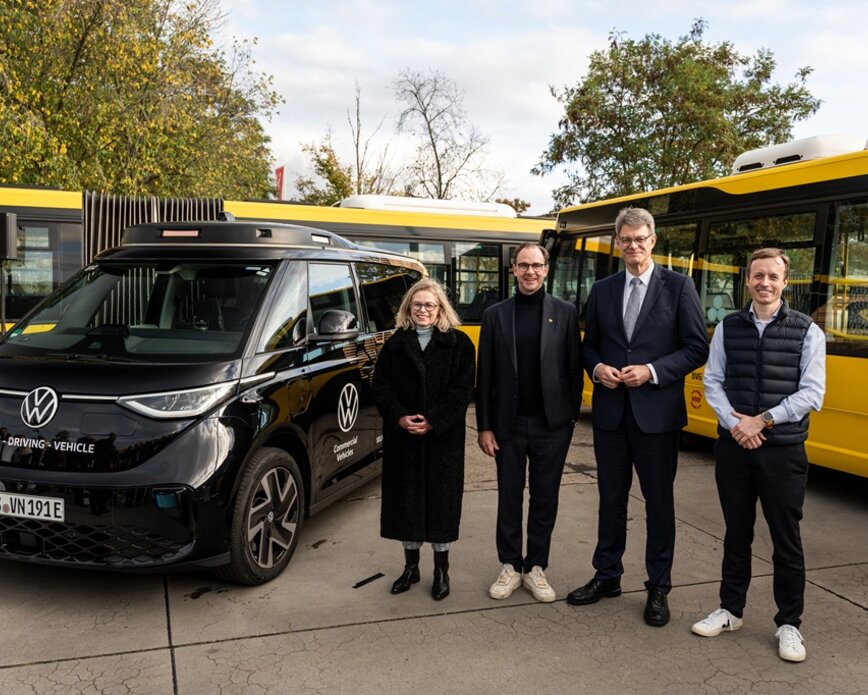Berlin, October 17, 2025 – The autonomous revolution begins in northwest Berlin. The first ID. Buzz AD vehicles are now on public roads – equipped with state-of-the-art Level 4 technology, including software systems and services from Volkswagen subsidiary MOIA. The aim of the project is to combine traditional public transport with flexible autonomous offerings – a catalyst for a tailor-made mobility service for Berlin residents.
Today, the project partners, in the presence of Federal Transport Minister Patrick Schnieder, officially kicked off the project. What starts as a pilot project paves the way for the later rollout of Germany’s largest fleet of autonomous vehicles as part of the public transport system.
Henrik Falk, CEO of BVG: “Today marks the beginning of a new era. Regardless of life situation, autonomous vehicles will enable us to create an entirely new mobility system that truly meets people’s individual needs in our city.”
The next milestone will follow in the first half of 2026: test drives with passengers will begin. The project is supported by the Federal Ministry of Transport with a total of 9.5 million euros.
Federal Transport Minister Patrick Schnieder: “Autonomous driving is the key to the mobility of the future. It stands for greater efficiency and inclusion in road transport. Projects like the planned autonomous shuttles in northwest Berlin are therefore groundbreaking.”
In the NoWeL4 project (Northwest Level 4), five vehicles will operate with passengers in a roughly 15-square-kilometer test area covering parts of Spandau, Charlottenburg-Wilmersdorf, and Reinickendorf. The vehicles will move freely within the area and serve around 80 stops. During test drives, a safety operator will remain on board to intervene if necessary, while a control center monitors the vehicles remotely.
Ute Bonde, Senator for Mobility, Transport, Climate Protection and Environment: “Autonomous shuttles, which will operate reliably and flexibly in the future, are a key vehicle towards tomorrow’s mobility.”
Sascha Meyer, CEO of MOIA: “Today we show that autonomous mobility ‘made in Europe’ is already a reality. Together with BVG, Germany’s largest public transport operator, we have reached an important milestone. We are bringing our complete solution – vehicle, software, and services – to Berlin’s streets.”
The project will run until 2027, after which autonomous transport is expected to become a permanent part of Berlin’s mobility system. Other partners include the Technical University of Berlin (TUB) and the Institute for Climate Protection, Energy and Mobility (IKEM).


